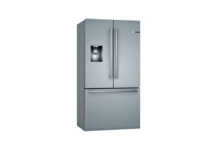Paying for Convenience of Hot Water in Your House
In modern times, hot water is something that we take for granted both in terms of its supply to our homes and the amount we pay for the privilege. Since this is a necessary expense, only a small number of homeowners and business owners fully understand how much they pay for hot water. How much do you pay? Is it better to have a whole-house system or just to warm the water at the faucet?
Naturally, the amount that you pay for hot water in your house can fluctuate from one year to the next. Each year, hot water also accounts for a different percentage of your overall bills. Not only does the cost of hot water fluctuate, but the same happens to energy, heating, and other common costs.
Despite this, one recent survey suggests that hot water accounts for between 10% and 15% of overall bills for the average household. What’s more, around 20% of the typical gas bill for a household goes towards heating water for baths, showers, and other hot water purposes.
As a homeowner, it’s best to understand the amount you’re paying for hot water because there are some things that you can do to reduce this amount. Considering that the average household uses over 350 litres of water per day, it’s time to take a proactive approach with your hot water spending.
Not only does water conservation save the planet, but it saves your bank account too. By saving water or utilizing it more effectively, you won’t spend so much on energy bills, and you can free up cash for other purposes.
What Type of Water Heater Should You Choose? Whole House or at the Faucet?
Traditionally, homeowners had no option but to use whole-house water heaters. Over the years, the need for a tank has disappeared, but the idea is still to provide the whole house with hot water. However, homeowners and business owners are no longer forced to stick with this system. In recent years, a newer system has emerged whereby water is heated at the point of use (at faucets). But which is better?
When it comes to whole house water heaters, one of the benefits is that your whole house has hot water whenever required. Unlike the tank predecessors, you shouldn’t ever run out. Despite this, one of the biggest problems is that it can struggle under the pressure of a modern home (showers, laundry, sinks, and other demands!).
Furthermore, there’s also a waiting game as the hot water travels from the central location to your fixture. If you’re in a rush to wash your hands, cold water will first leave the tap until the hot water has travelled through the pipes.
On the other hand, more people are turning to POU (point of use) heaters because they’re more efficient and effective. Since they’re smaller, POU solutions generally use less energy. Rather than preparing lots of hot water for the whole house in case it’s needed, the water is heated as it leaves the faucet. You only heat what you use, and this is an attractive proposition to many.
Despite the many positives, the biggest problem with POU systems is the initial investment in installing electrical lines into the faucet system. The more bathrooms and faucets you have, the more you will need to install. Thankfully, Hero Plumbing can help homes of all sizes choose the best hot water system for their needs!









![Anso FG Reviews: UPDATED 2024 [ansofg.com] Anso FG Reviews UPDATED 2024 [ansofg.com]](/wp-content/uploads/2023/12/Anso-FG-Reviews-UPDATED-2024-ansofg.com_-100x70.png)







